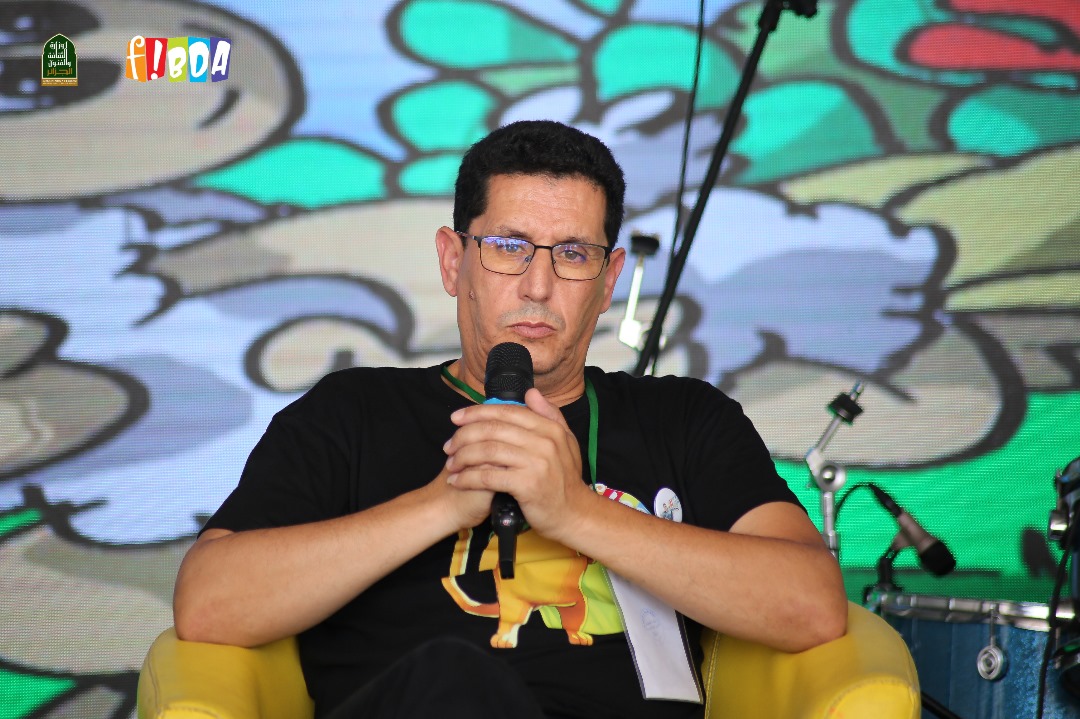The 17th Algiers International Comic Festival (Fibda) hosted, on October 4, 2025, an unprecedented conference dedicated to the theme « Comics in the Amazigh Language ». The session was led by Kamel Bentaha, comic artist and author, and one of the most promising figures on the Algerian comic scene.
Speaking to an attentive and engaged audience, Bentaha explored the challenges, ambitions, and prospects surrounding the development of Amazigh-language comics. He also opened the debate on their national recognition and their role in safeguarding cultural heritage.
Bentaha traced the fragile beginnings of Amazigh comics, which were long excluded from mainstream publishing. « The development of Amazigh comics was not a natural process. It had to be imposed, sometimes against the current », he explained, recalling the dominance of French and Arabic productions during the 1990s, largely shaped by caricature and humor.
He also pointed to the influence of Western icons such as Mickey and Scrooge McDuck, which marked the collective imagination and left little space for narratives rooted in Amazigh realities.
Addressing the central question « Why create comics in Amazigh? », Bentaha offered a clear answer: comics can serve as a powerful medium for transmitting language and culture. « Drawings speak to everyone. But when they’re accompanied by Tamazight, they speak to the soul », he emphasized.
The author highlighted the richness of themes that can be explored through this medium, from traditional tales and local legends to contemporary issues such as identity, the environment, and migration. « Amazigh comics can tell modern stories without turning away from tradition », he said.
The discussion also touched on the absence of a specific Amazigh term for comics, often replaced by literal translations or borrowed from Arabic or French. For Bentaha, this lack reflects a deeper symbolic gap. « We need to name our art to make it exist », he argued, calling on linguists, artists, and institutions such as the High Commission for Amazighity (HCA) to engage in this effort.
